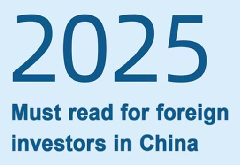Policy Interpretation of the Announcement on Optimizing of the Review and Approval Process for Clinical Trials of Innovative Drugs
I. Background of the Announcement
In recent years, China's bio-pharmaceutical innovation capabilities have continued to strengthen, with the accelerated emergence of innovative outcomes. As a critical phase in drug development, clinical trials play a pivotal role. To further support the R&D of innovative drugs, the National Medical Products Administration (NMPA) launched a pilot program in July 2024 to optimize the review and approval process for innovative drug clinical trials. Through policy guidance and multi-party coordination, the pilot aimed to enhance the quality and efficiency of clinical development, expedite the review of pilot trial applications, and improve the ecosystem for innovative drug clinical trials in China. The pilot has now concluded. In accordance with the Opinions of the General Office of the State Council on Comprehensively Deepening the Reform of Regulation of Drugs and Medical Devices to Promote the High-Quality Development of the Pharmaceutical Industry (GBF [2024] No. 53, hereinafter referred to as "the Opinions"), and based on feedback from relevant government departments, industry associations, domestic and international enterprises, clinical trial institutions, and experts, the NMPA has issued the Announcement on Matters Related to the Optimization of the Review and Approval Process for Clinical Trials of Innovative Drugs. This announcement further refines resource allocation for review and approval, and promotes higher quality and efficiency in clinical development of innovative drugs.
II. Why Introduce a 30-Day Pathway in Addition to the Existing 60-Day Implicit Approval Mechanism?
Since the reform of the drug review and approval system, the NMPA has continuously improved clinical trial management to promote pharmaceutical innovation. Since the implementation of the 60-day implicit approval system in 2019, the review and approval efficiency of clinical trial applications has significantly improved. Through multiple efforts, the average review timeline has been reduced to approximately 50 working days, accelerating the development and market availability of innovative drugs and enabling China's R&D ecosystem to better integrate into the global development system.
The implementation of the 60-day implicit approval mechanism has effectively met the development needs of China's bio-pharmaceutical R&D sector. With the progressive rollout of national policies supporting innovative drug development, continuous breakthroughs have been achieved in biomedical technology innovation. For certain pipeline products that address critical unmet medical needs, there is an increasing demand to further accelerate their development. In addition, China possesses abundant clinical development resources. In recent years, the capabilities and expertise of domestic clinical trial institutions and professionals have significantly improved, creating favorable conditions for early and in-depth participation in global R&D and innovation. Therefore, the NMPA has coordinated existing review and approval resources and established a 30-day expedited review pathway on top of the 60-day implicit approval mechanism. This aims to provide additional acceleration for INDs with urgent development needs, without compromising the review efficiency of the existing 60-day pathway.
III. How Does the 30-Day Clinical Trial Review and Approval Pathway Balance Acceleration with High-Level Safety?
The high-quality development of bio-pharmaceutical innovation relies on high-level safety assurance. Drug clinical trials are scientific studies conducted to determine a drug's safety and efficacy, and inherently involve unknown risks, making risk control a critical component of the process. China is a Standing Member of the International Council for Harmonization of Technical Requirements for Pharmaceuticals for Human Use (ICH) and has already fully adopted and implemented all ICH guidelines, thereby aligning its clinical trial technical standards with international norms. The 30-day review pathway strictly maintains these standards and conducts review and approval within the existing international clinical trial technical framework, ensuring no compromise in quality or safety. At the same time, the pathway promotes enhanced collaboration among R&D sponsors, clinical trial institutions, principal investigators, and ethics committees, to further improve clinical trial risk control on the basis of current systems. R&D companies are required to strengthen early communication with principal investigators and trial institutions, identify potential risks in advance, and develop risk mitigation plans to ensure trial risks remain controllable. Principal investigators should participate early in risk assessment and review the clinical trial protocol prior to the submission of the IND. Ethics committees are expected to reinforce end-to-end risk review and assessment, ensuring the protection of trial participants is upheld even as procedures are expedited. To support implementation, the Center for Drug Evaluation of the NMPA has drafted the Technical Guidelines for Compilation the Development Risk Management Plan of Innovative Drugs (Trial). This document provides guidance to all stakeholders on integrating life-cycle risk management into the entire drug development process.
IV. What is the Rationale for Including Priority Innovative Drugs with Significant Clinical Value and National Full-Chain Policy Support in the 30-Day Pathway?
On July 5, 2024, the Executive Meeting of the State Council reviewed and approved the Implementation Plan for Whole-chain Support for Innovative Drug Development. The Plan calls for comprehensive reinforcement of policy support across the entire development chain, optimization of the review and approval mechanisms, and coordinated efforts to facilitate breakthrough development of innovative drugs. In accordance with this Plan, priority innovative drug candidates that demonstrate significant clinical value and receive support under the national full-chain policy framework for innovative drug development may, upon request, be included in the 30-day pathway.
V. What Is the Rationale for Including Globally Synchronized Development Varieties and International Multi-Center Clinical Trials in the 30-Day Pathway?
The Opinions call for supporting drug clinical trial institutions to participate in early clinical research and development of innovative drugs, facilitating the conduct of international multi-center clinical trials, and promoting the concurrent research and development, submission, evaluation, and marketing of global drugs in China. To implement the Opinions, the NMPA supports the inclusion of eligible globally synchronized development varieties and international multi-center clinical trials in the 30-day pathway. Phase I and II clinical trials, as early-stage exploratory studies, may be conducted either exclusively in China or simultaneously in multiple countries as part of global development programs. For Phase III clinical trials, inclusion in the pathway requires that the trial be led or co-led by principal investigators from Chinese clinical trial institutions. Early involvement of Chinese principal investigators in the clinical development process helps ensure that globally developed innovative drugs are better aligned with Chinese clinical practice, thereby enhancing their relevance and benefit to Chinese patients.
VI. What Is the Scope of Eligible Pediatric, Rare Disease, and Traditional Chinese Medicine Innovative Drugs Published by the Center for Drug Evaluation of the NMPA?
The Center for Drug Evaluation of the NMPA has published a list of eligible pediatric and rare disease innovative drugs, which includes those included in special national plans, such as the Pediatric SPARK Plan and the Rare Disease Care Plan. The scope of other eligible traditional Chinese medicine innovative drug varieties will be formulated and released separately.
VII. What Is the Consideration Behind Requiring Applicants to Commit to Initiating Clinical Trials Within 12 Weeks Under the 30-Day Pathway?
The 30-day pathway is a reform initiative by the NMPA to prioritize review and approval resources for eligible innovative drug INDs. Applicants are required to commit at the time of application that the clinical trial will be initiated within 12 weeks (defined as the first Chinese subject signing the informed consent form). This commitment indicates that the applicant has a genuine need and readiness to conduct clinical development at an accelerated pace. Effective collaboration and efficiency among all parties involved in the trial are essential to ensure that the clinical trial is promptly initiated after approval. This is the only way to truly accelerate clinical development and allow the 30-day pathway to achieve its intended impact. Applicants shall select the 30-day or 60-day implicit approval pathway based on the actual development needs of their product and shall register trial initiation and progress information on the Drug Clinical Trial Registration and Information Disclosure Platform.



